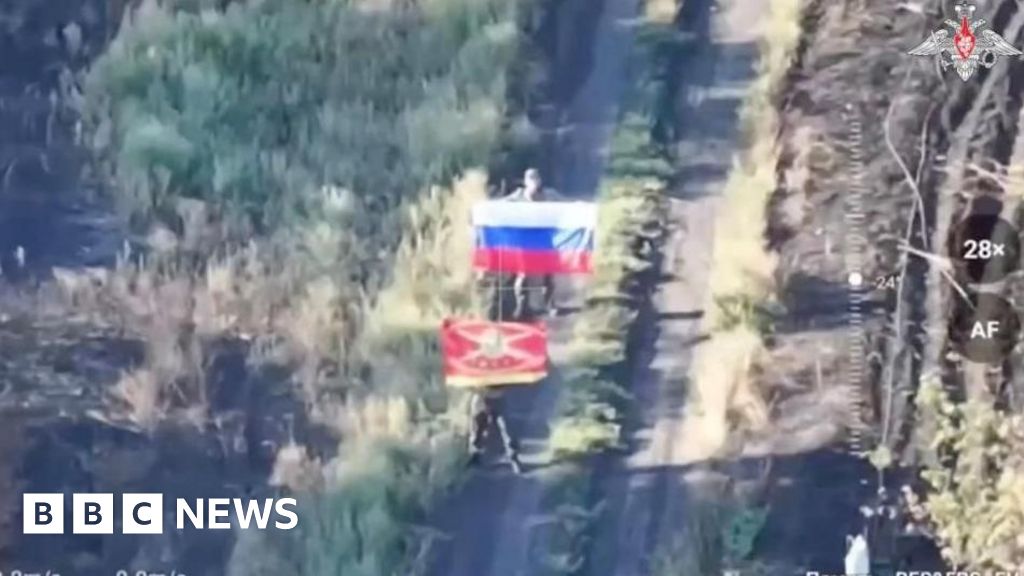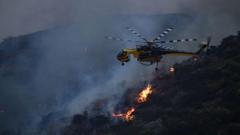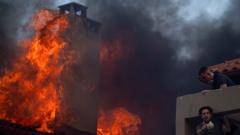In the closed-doors of the Olympic Museum near Lake Geneva, the campaign for the presidency of the International Olympic Committee (IOC) is unfolding, characterized by an unconventional and enigmatic election process. With the voting set for March, seven candidates, including notable figures like Prince Faisal bin Al Hussein and Olympic champion Kirsty Coventry, are presenting their visions for leading one of the most prominent organizations in international sports.
The outgoing president, Thomas Bach, ensured that discussions among the sitting members remained separate from the candidates, a practice rooted in maintaining decorum but criticized by contenders who feel the forces of transparency are being stifled. The election's protocols, often likened to a papal conclave, have restricted public discourse and debate, limiting meaningful engagement between candidates and IOC members.
Candidates like Prince Faisal and Kirsty Coventry emphasize the need for greater inclusion and transparency, while others, like Spanish businessman Juan Antonio Samaranch, express discontent with the restrictive system that governs the election. Despite the lack of open discussion, the competition is fierce, with contenders including respected sports federation leaders, each lobbying for a pivotal role in decision-making over the world’s largest sporting event.
Among the pressing challenges the future president will face include negotiating lucrative broadcasting contracts and navigating the controversial waters of global anti-doping policies. As anticipation builds for the upcoming vote, the candidates find themselves racing against time to solidify their support under the watchful eyes of IOC members, while hoping to break through the barriers of the complex electoral process.
As the path to the presidency unfolds in secrecy, the use of strategic networking and calculated presentation becomes key. Each candidate is now tasked with overcoming the challenges posed by the existing structures, emphasizing that a new era of leadership is essential in steering the IOC forward. The stakes are high, and the eventual winner will hold a unique position, transcending sports diplomacy in an increasingly divided global landscape.
The outgoing president, Thomas Bach, ensured that discussions among the sitting members remained separate from the candidates, a practice rooted in maintaining decorum but criticized by contenders who feel the forces of transparency are being stifled. The election's protocols, often likened to a papal conclave, have restricted public discourse and debate, limiting meaningful engagement between candidates and IOC members.
Candidates like Prince Faisal and Kirsty Coventry emphasize the need for greater inclusion and transparency, while others, like Spanish businessman Juan Antonio Samaranch, express discontent with the restrictive system that governs the election. Despite the lack of open discussion, the competition is fierce, with contenders including respected sports federation leaders, each lobbying for a pivotal role in decision-making over the world’s largest sporting event.
Among the pressing challenges the future president will face include negotiating lucrative broadcasting contracts and navigating the controversial waters of global anti-doping policies. As anticipation builds for the upcoming vote, the candidates find themselves racing against time to solidify their support under the watchful eyes of IOC members, while hoping to break through the barriers of the complex electoral process.
As the path to the presidency unfolds in secrecy, the use of strategic networking and calculated presentation becomes key. Each candidate is now tasked with overcoming the challenges posed by the existing structures, emphasizing that a new era of leadership is essential in steering the IOC forward. The stakes are high, and the eventual winner will hold a unique position, transcending sports diplomacy in an increasingly divided global landscape.




















